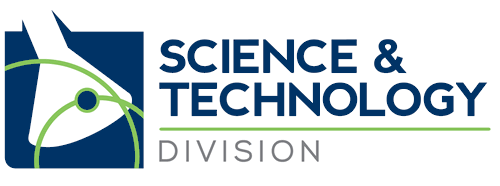by Patrick Weill, CT
Would you like to improve your level of success in translation or interpreting? If so, I have a four-part philosophy regarding some recent experiences I have had as a translator that I would like to share with you. The four S’s refer to skill, sales, self, and service. Developing these four areas allows us to unlock our potential and move more freely both professionally and personally. I’ve grouped them into two pairs: the more technical “skill and sales” pair, and the more personal “self and service” pair. The elements of each pair, and the two pairs themselves, are mutually complementary.
This comprehensive philosophy of success in business and life will be presented in four parts; today’s text discusses the foundation of success. The bottom line. If our product is poor, we will eventually fail, while having a great product is a good indicator of success. There are other important factors, though.
Skill in business is all about discipline. Doing what we do not want to do. A wise man once gave me a great piece of advice: “Successful people are willing to do what others aren’t.”In order to provide a great product all of the time, our language skills must be top-notch, for both languages in a given pair or pairs, and under continuous development. How can we improve our skill in a non-native language? The best way is to live in or visit a place where the language is (exclusively) spoken, as cultural knowledge is crucial to our understanding of the subtleties that often underlie our source language discourse. Grammar is also important. It’s necessary to know the rules. Having both practical (conversation) and theoretical (grammar/syntax) skill is necessary if we want to be real experts.
What about improving our skills in our native languages? “It’s my native language so I don’t need to work on it.” No, no, no. Even though I had a strong high school and university education, was fairly well-read, and thus had a good command of my native language, it wasn’t until I had worked for several years as an English teacher for native Spanish speakers that I was able to gain an understanding of the language’s fine points, allowing me to work at a professional level as a translator into and editor of English.
Specialization is another important element in our professional skillset. What with neural machine translation and the effect of globalization, the latter virtually allowing members of virtually any economy to compete with us as translators remotely via the internet, we have to differentiate ourselves from the bottom feeders – and middle feeders, too, preferably. I want to be a top feeder. So, again, discipline is key in areas such as subject-area research and CPD (Continuing Professional Development). Sometimes I spend more time reading about the subject in a translation or editing project than I do actually translating or editing. And if there are no face-to-face training courses given by experts in your region, the ATA Webinar Series and eCPD are very good options. The harder it is to gain expertise in a given subject area, the fewer competitors we will have in this area. Of course, as Ms. Chris Durban has alluded to, these are high-risk areas and demanding clients, so we should not offer services in areas in which we are unable to guarantee quality.
Which leads me to my final point. Mr. Shakespeare wrote “To thine own self be true,” and you are probably familiar with the old maxim “know thyself.” This is particularly relevant to us as language professionals. Anybody can do anything, I know, so we shouldn’t limit ourselves, and we shouldn’t be afraid to explore new avenues. In fact, doing new things and taking calculated risks is a big part of success. Nevertheless, what I want to say is that we all have certain areas of strength and weakness, and we need to know how to best exploit the former while avoiding the pitfalls associated with the latter. Focus on what you are good at. Use your strengths to get ahead, and be honest with yourself about your own abilities. That’s not the same as being weak. That’s being optimally strong by knowing yourself and using the tools you were given to your best advantage.
Once we have this optimized product, we must also let people know about it via sales and marketing, discussed in next issue’s installment. Balancing the maximization of our professional skills with a strategic effort to make potential clients aware of how we can serve them will pay off in the short and the long run. Best of luck to you all!
Pat Weill has been living in central Mexico for 12 years and has been translating for 11 years, with a special focus on medicine and science. He is originally from northern California, and when not staring at a shiny screen, he enjoys spending time with family, friends, and his dog Lulu, in addition to reading, sports, and video games.

